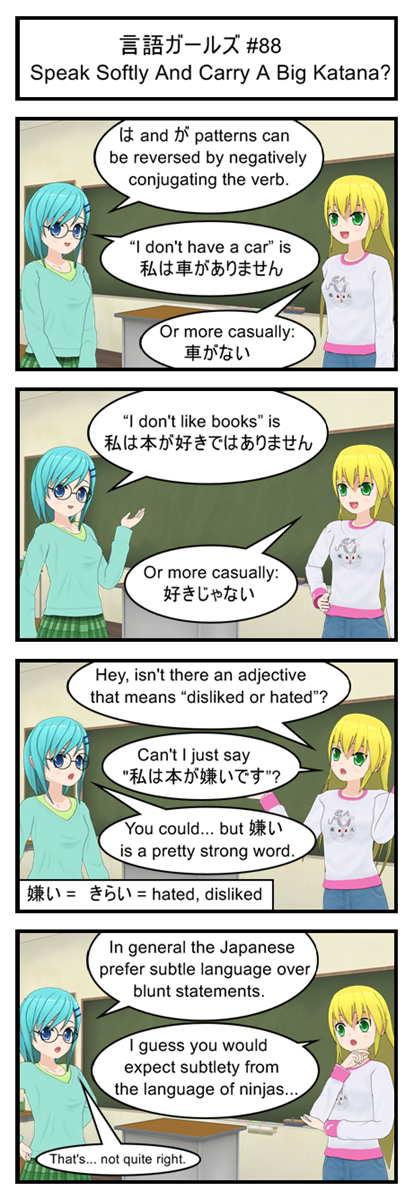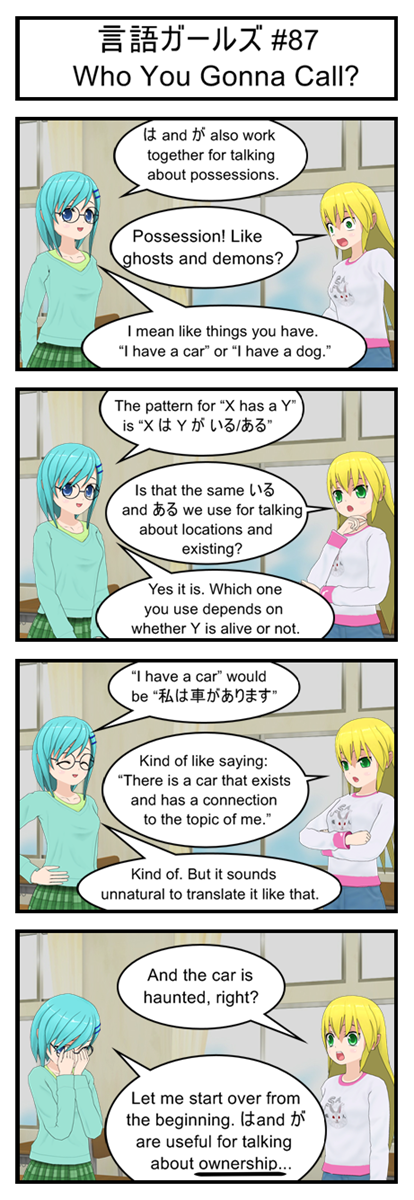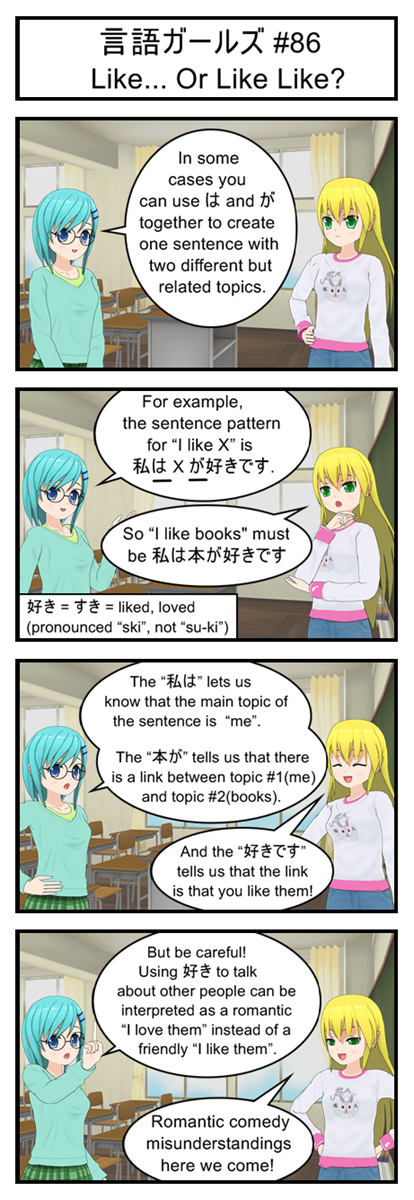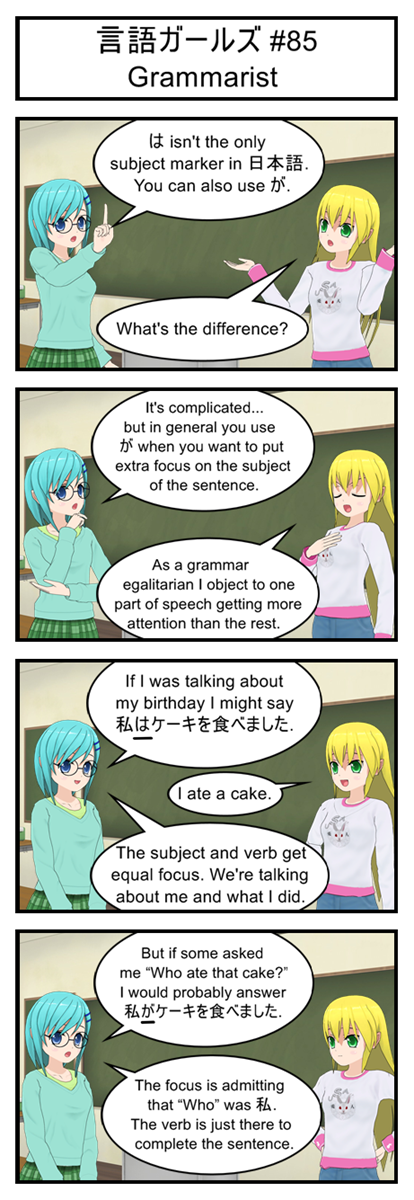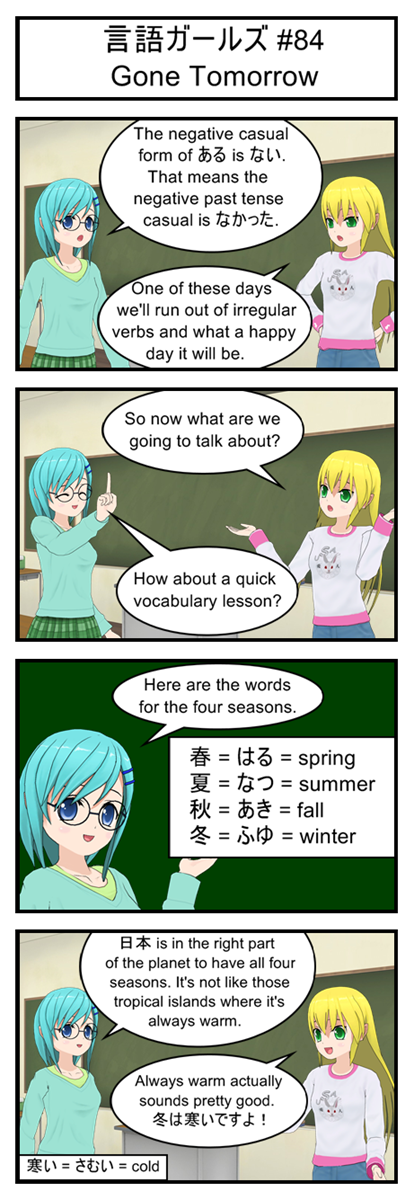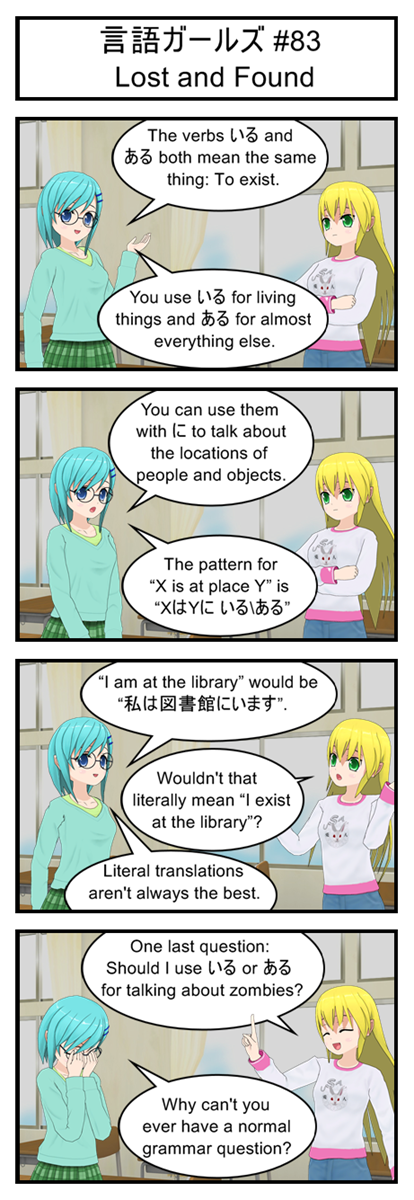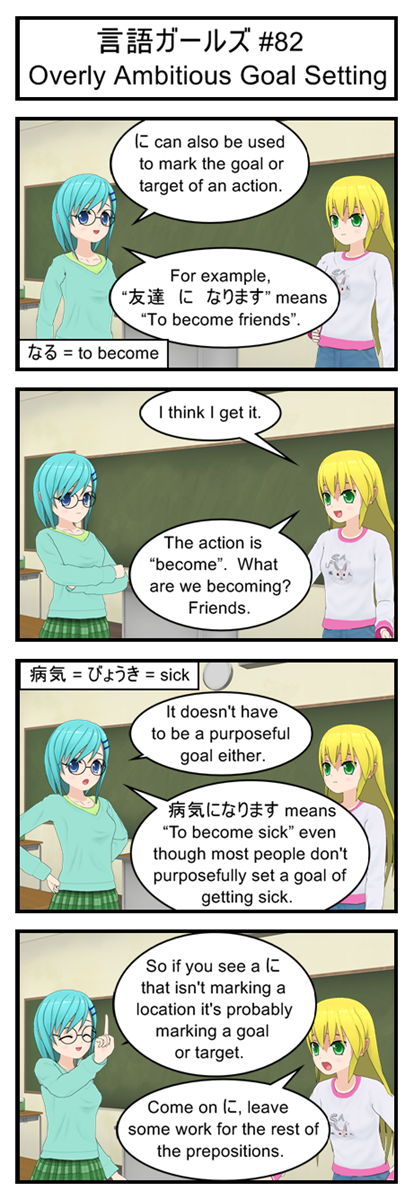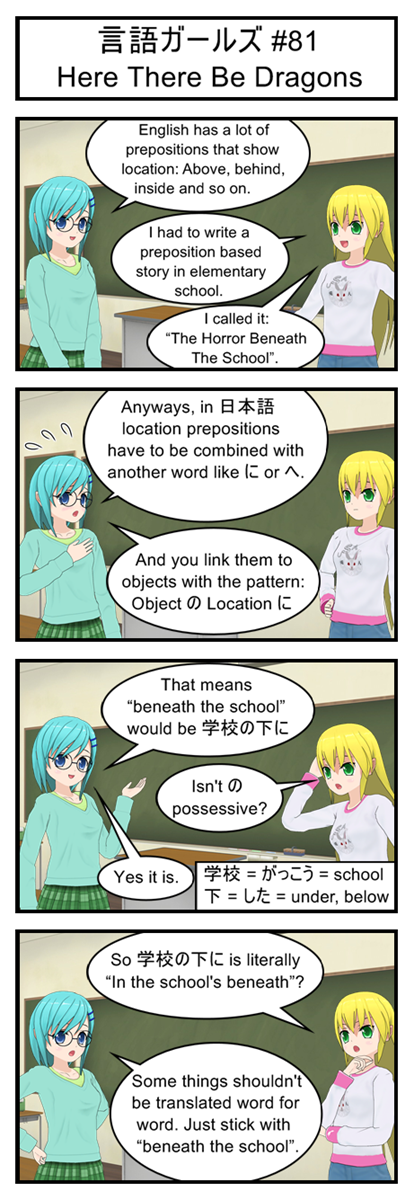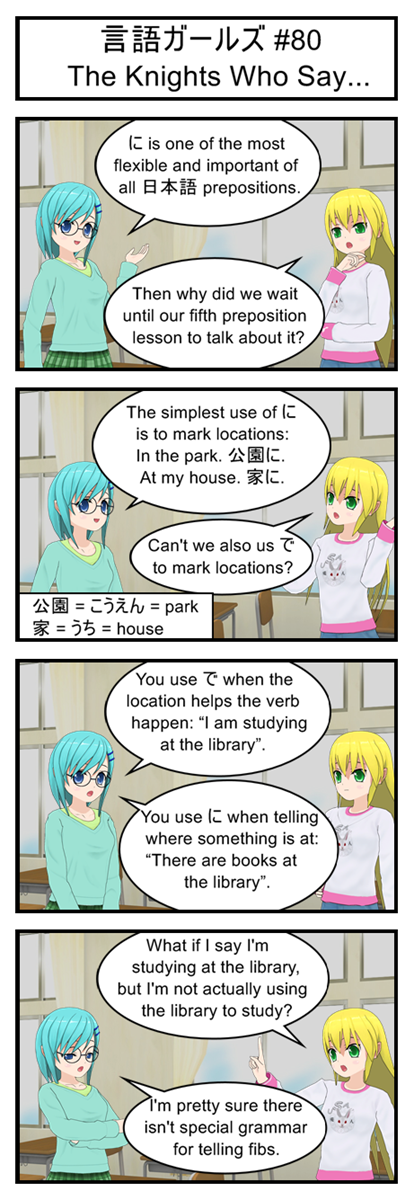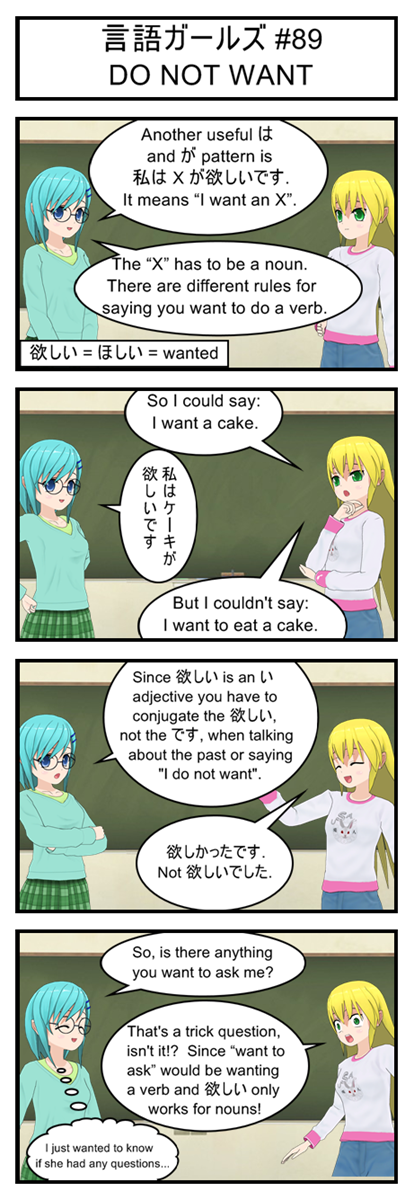
It’s always kind of fun to look at how different languages approach the same idea. In English it’s “I want an X” but in Japanese it’s “X is wanted by me”. It works out to the same meaning in the end but it can take a little work to get used to the unusual (to us Americans) word order.
Vocabulary
欲しい = ほしい = wanted
Transcript
言語ガールズ #89
DO NOT WANT
Blue: Another useful は and が pattern is 私は X が欲しいです. It means “I want an X”.
Blue: The “X” has to be a noun. There are different rules for saying you want to do a verb.
Yellow: So I could say: I want a cake.
Blue: 私はケーキが欲しいです.
Yellow: But I couldn’t say: I want to eat a cake.
Blue: Since 欲しい is an い adjective you have to conjugate the 欲しい, not the です, when talking about the past or saying “I do not want”.
Yellow: 欲しかったです. Not 欲しいでした.
Blue: So, is there anything you want to ask me?
Yellow: That’s a trick question, isn’t it!? Since “want to ask” would be wanting a verb and 欲しい only works for nouns!
Blue: I just wanted to know if you had any questions…
